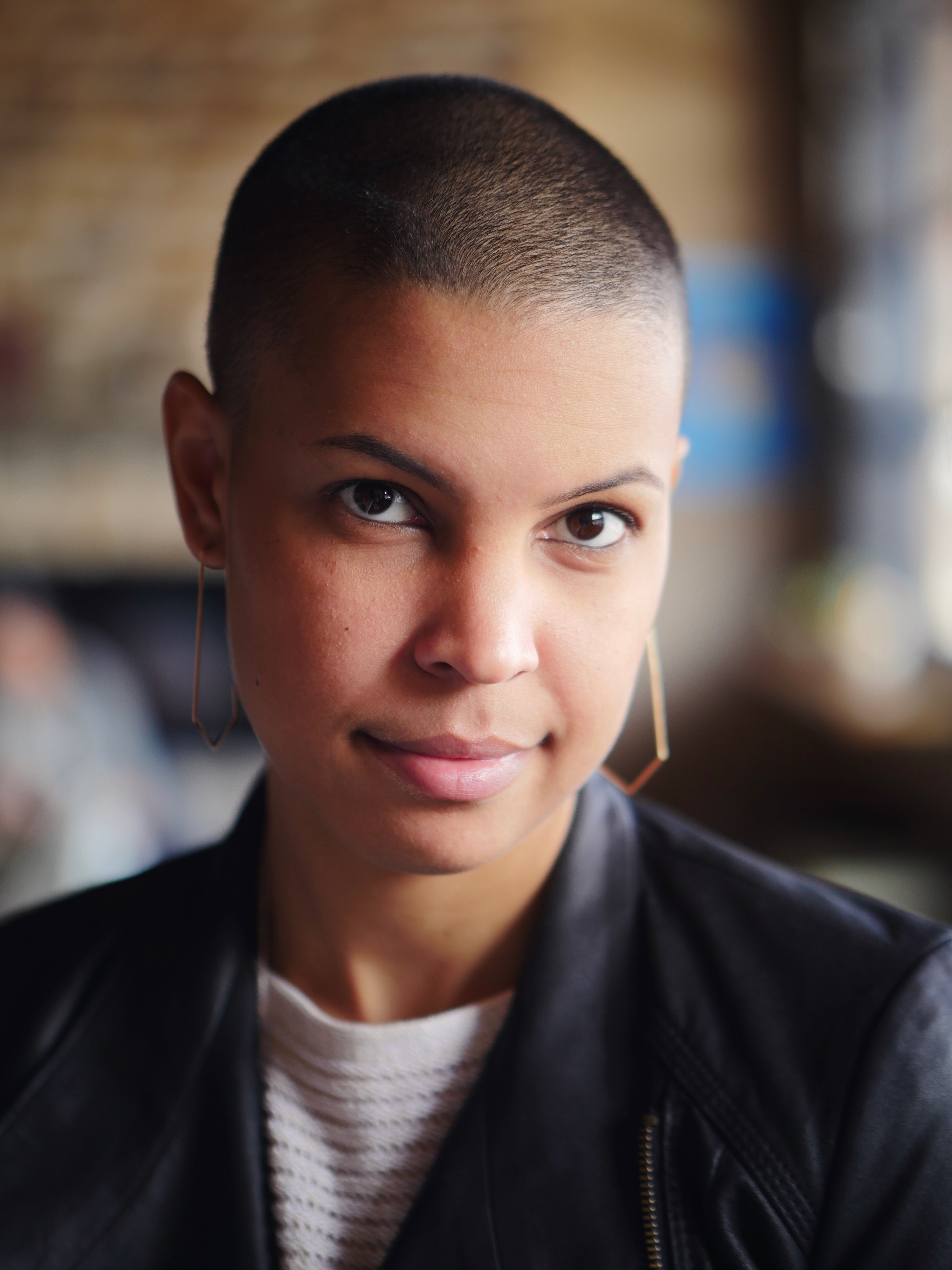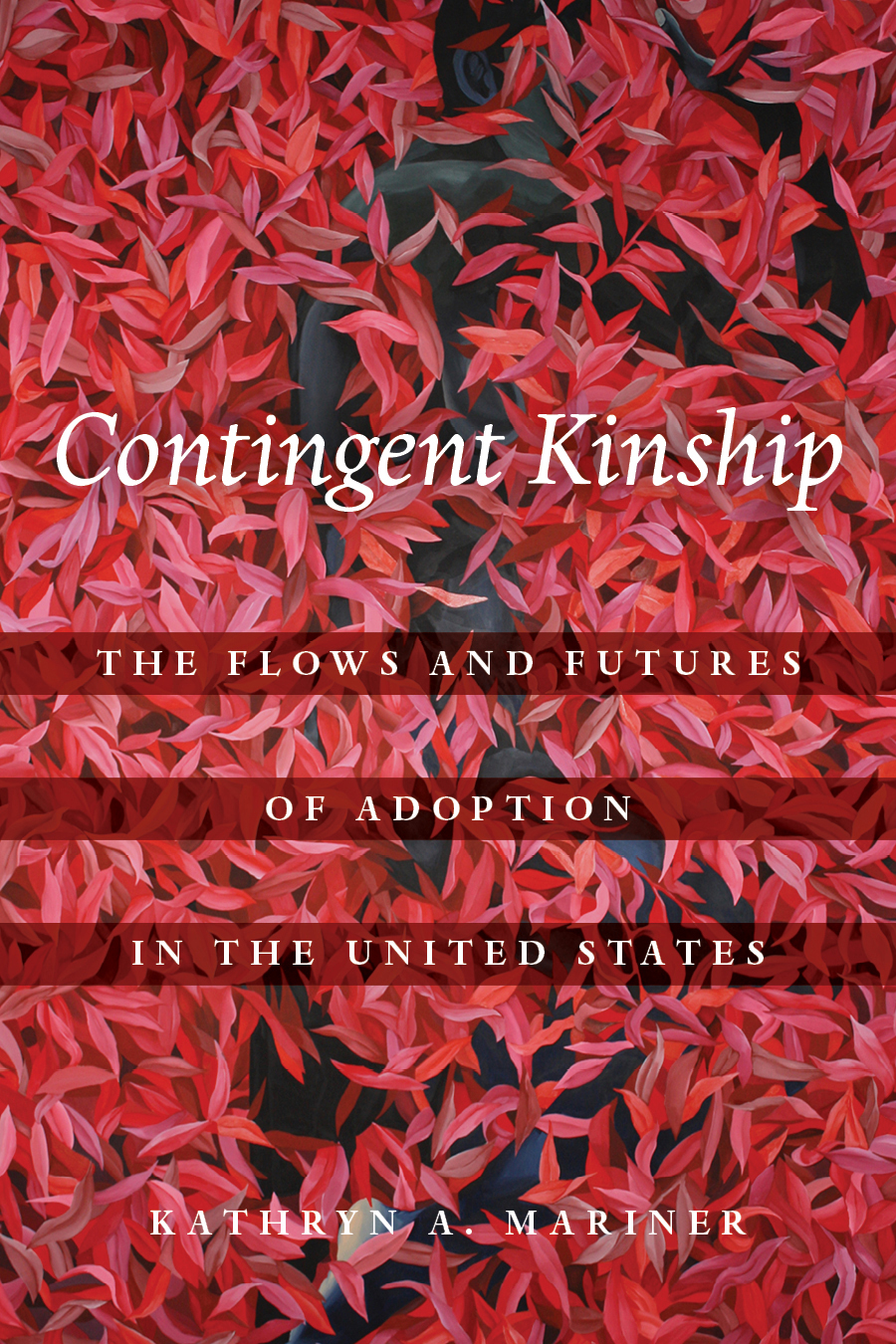Article begins
This month, the Association for Black Anthropologists presents an interview with Kathryn Mariner, assistant professor of anthropology and visual and cultural studies at the University of Rochester.

Portrait of of Kathryn Mariner. Miguel A. Cardona
Her forthcoming book, Contingent Kinship: The Flows and Futures of Adoption in the United States, examines the making of kin and futures through the lens of transracial adoption. Based upon ethnographic research with First Steps, an adoption agency specializing in transracial adoption in Chicago, Mariner examines the role of agency workers in negotiating relationships between expectant mothers and prospective adopters.
Many of us begin our work from a central curiosity or frustration with discourse about a subject. What are those seeds in this work, and what brought you to this project?
I came to this project with an abiding interest in race and kinship for reasons which will become clear and are elaborated further in the book. When I started the project, I was intensely curious about the adoption process itself—the nuts and bolts of how social workers brokered these exchanges—how it worked, and what “working” even meant in this context. I had read many accounts of the post-adoption experiences of adoptees and adoptive families, but I wanted to get at their conditions of possibility. I think a major contribution of the book is its attention to the various ways the adoption process can fail. Indeed, I found that the adoptive family is only one possible outcome of the adoption process. Another of my central curiosities with transracial adoption has always been the ways in which popular discourse erases so much of the nuance, and in particular, the structural conditions that make adoptive families possible in the United States. Domestic transracial adoption—often celebrated as progressive or even humanitarian, “the best of a bad situation”—tends to get cleaved off from its own structural conditions of possibility (residential segregation, poverty, dispossession, the devaluation of Black and other forms of marginalized motherhood). I hope my book helps elucidate the reverberations and traces of these enduring historical patterns in the contemporary engineering of kinship, and serves to inspire imaginings of other, better futures.
Contingent Kinship begins with a discussion of your own positionality with respect to adoption—as ethnographer and trained social worker—in your field site. How did you navigate these roles, and what are some of the moments that crystallized this conflict?
One of the things that has drawn me to anthropology is its robust tradition of reflective critique. Locating ourselves with respect to our sites and subjects is such a crucial skill and tool for social analysis. In addition to being an ethnographer trained in clinical social work, I am also a transracial adoptee, so my positionality was often front-and-center throughout my fieldwork—allowing me to connect more deeply with my interlocutors at certain times, and creating uncomfortable distance and misunderstanding at others. One of the things that has drawn me to anthropology is its robust tradition of reflective critique.
 You develop the concept of “intimate speculation” with respect to the relationships between actors in cases of adoption. Can you share what you mean by this?
You develop the concept of “intimate speculation” with respect to the relationships between actors in cases of adoption. Can you share what you mean by this?
To go back to this movement of attention from outcomes to process, in the book, intimate speculation is way to describe the temporally-inflected aspects of the adoption process—so it is a shift in thinking away from the adoptive family as adoption’s logical outcome. This move doesn’t so much ignore outcomes, as it opens up all kinds of other possibilities for what an outcome might be. The concept of intimate speculation describes the construction of adoptive kinship as at once anticipatory, economic, and visual—three frames for thinking through speculation more broadly. I chart how, for example, the anxieties felt by prospective adopters, the brokerage activities of social workers, and the erasure of expectant mothers are all deeply imbricated in the production of the adoptable child as a potent and highly contingent imagined future.
I’m struck by how language associated with the economic and financial markets—risk, investment, futures—permeates the adoption landscape. How can we think through adoption as an enterprise that is economic but not, as you say, “all about the money”?
This goes back to intimate speculation as a frame for thinking both through and beyond the economic. The concept of intimate speculation describes the construction of adoptive kinship as at once anticipatory, economic, and visual—three frames for thinking through speculation more broadly.
Much like birth, bringing a book into the world is a complex endeavor. What have you learned about ethnography, and what advice might you give to scholars doing this for the first time?
Baby steps, no pun intended! In all seriousness, it is vital to remember that a book—most academic writing projects, really, at least in my experience—is a marathon, not a sprint. This book took ten years. I found it really helpful to set goals at various scales, and also to simply trust the process. Also, and apropos of this, I think I have learned that the book is not my “baby,” but rather the crystallization of perhaps a decade of thought frozen at a particular moment in time. As in, it isn’t really finished; it just ends in what I hope is an interesting place. Books can be distressing to write, as we know, because life “in the field” goes on happily (or unhappily, as the case may be) after we leave. And we keep growing and developing as ethnographers too. I am starting a new project now on urban racial segregation, and it is exciting to refine my ethnographic technique this time around, as I am sure I will continue to do with each subsequent project. It is a great comfort to me that I will hopefully get to write another book after this one—indeed, I hope Contingent Kinship is the “worst” book I ever write (in the sense that ongoing improvement is the goal). Lastly, it is important to remember that although writing can be isolating at times, we do not write books alone—so many people helped usher this book into the world, not least of whom are those in whose lives its insights are rooted. So while in a sense it is “my” book, it belongs to them as well. They are its condition of possibility, and for that I am grateful.
Kathryn Mariner is assistant professor of anthropology and visual and cultural studies at the University of Rochester. Her book, Contingent Kinship: The Flows and Futures of Adoption in the United States is forthcoming in 2019.
This interview was brought to you by Michelle Munyikwa and Amelia Herbert, Contributing Editors for the Association of Black Anthropologists. If you’d like to contribute to this column, please reach out to us at [email protected] and [email protected].
Cite as: Mariner, Kathryn. 2019. “Kathryn Mariner’s Contingent Kinship.” Anthropology News website, April 18, 2019. DOI: 10.1111/AN.1144

